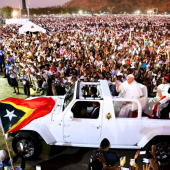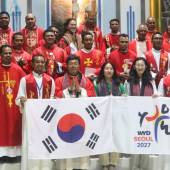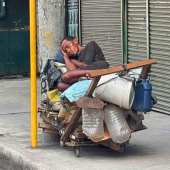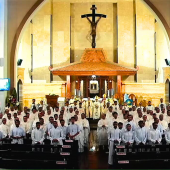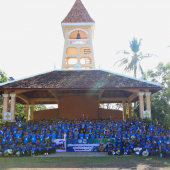East Timor votes to elect next president
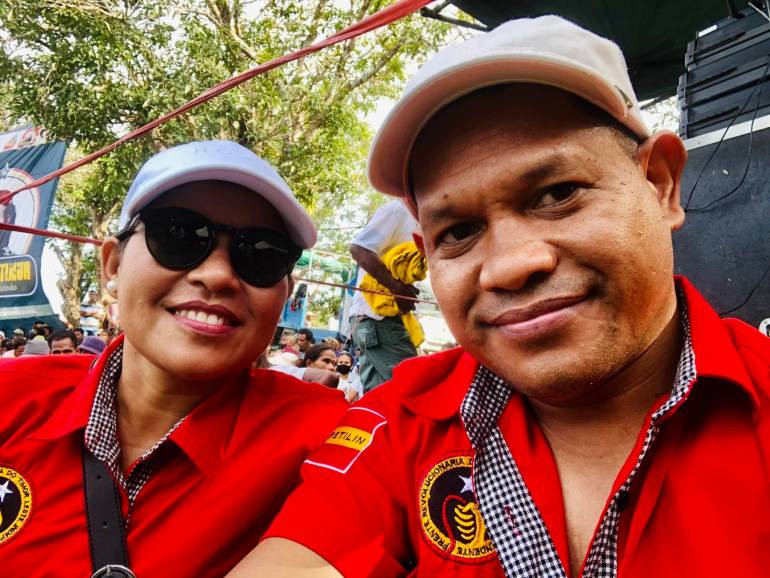
The people of East Timor are voting today (April 19) to select their next president.
The two presidential candidates are former revolutionary hero and peace prize winner Jose Ramos-Horta and the incumbent President Francisco “Lu-Olo” Guterres’.
The voting started at 7 in the morning. More than 860,000 citizens out of 1.3 million are eligible to vote. The counting of votes may take some days. This is the second round of polling.
The first round of elections in Southeast Asia’s youngest country was held on March 19.
According to reports, about 77 percent (a record high number) of people participated in the polls (March 19) in which 16 candidates were in the fray. Despite this, no candidate got the needed majority to win. Therefore, the second round of elections is held today between the two candidates.
In the first round, Ramos-Horta got 46 percent of the votes while Guterres earned 22 percent.
Whosoever wins the April 19 polls will assume office on May 20, which marks the 20th anniversary of East Timor’s independence from Indonesia which had occupied for 24 years. Before that, East Timor was a former Portuguese colony.
For years, East Timor has faced several political deadlocks between the two major parties—the National Congress of the Reconstruction of Timor-Leste (CNRT) and the Revolutionary Front for an Independent East Timor (Fretilin).
The 67-year-old Guterres is the Fretilin party president. In 2017, he was elected the president (2012-2017), with the help of former rebel Xanana Gusmao, the country’s first president, and current CNRT leader. Gueterres was the country’s first prime minister.
This time, the CNRT party and the 72-year-old Gusmao nominated Ramos-Horta as a leader, who got the Nobel Peace Prize in 1996 for his contribution to ending the conflict and was the spokesperson of the independence movement.
On the onslaught of Covid-19, the country faces many challenges to improve its economy. About 42 percent people of 1.3 million of the population live in poverty, says the World Bank.
In East Timor’s political system, the president shares some executive powers and appoints a government, and has the power to veto ministers or dissolve parliament.
The country depends on revenues from its offshore oil and gas reserves which account for 90% of its gross domestic product.
It has a bilateral agreement with Australia to split revenue from the Greater Sunrise gas field, which is worth an estimated US$ 65 billion. Its main revenue stream, the Bayu Undan gas field, is set to dry up by 2023 and the country is now planning to collaborate with companies like Australia’s Santos to turn it into carbon capture facilities.
Critics say the government has failed to capitalize on its natural resources to fund development and diversify its economy in the country.
East Timor comprises the eastern half of Timor Island, the western half of which is part of Indonesia. It spans a 15,000 square km (5,792 square miles) land area – slightly smaller than Israel – and its 1.3 million people are predominantly Roman Catholic or 97 percent of the population is Catholics.
There are three dioceses — Dili, Baucau, and Maliana. Pope Francis is to visit the country this year, though the actual dates are not yet announced.
Radio Veritas Asia (RVA), a media platform of the Catholic Church, aims to share Christ. RVA started in 1969 as a continental Catholic radio station to serve Asian countries in their respective local language, thus earning the tag “the Voice of Asian Christianity.” Responding to the emerging context, RVA embraced media platforms to connect with the global Asian audience via its 21 language websites and various social media platforms.










